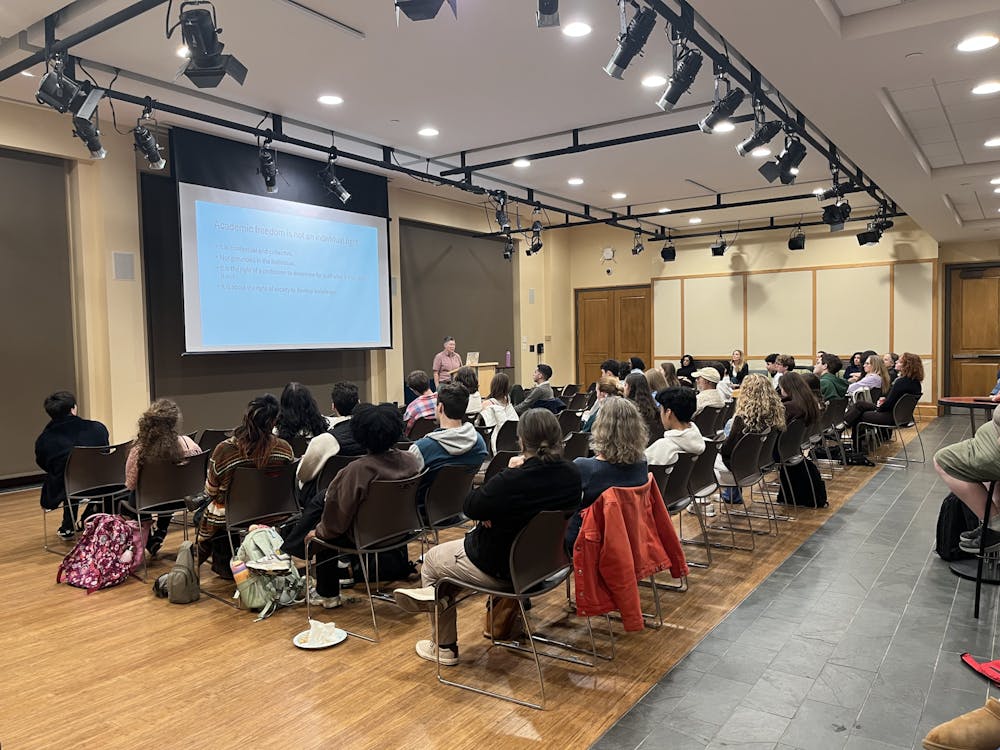The University of Richmond has an outbreak of adenovirus, a respiratory illness. Several students were tested by the Student Health Center and diagnosed with the virus, according to an email sent to students on Nov. 29.
The outbreak at UR comes in the wake of a University of Maryland freshman’s untimely death from an adenovirus-related illness, as well as an outbreak in New Jersey that claimed the lives of 11 children.
“Adenovirus is highly contagious,” Eugene Wu, a biology professor, said. “It is hardy and can survive days or even weeks on infected surfaces.”
Adenovirus, pronounced ad-noh-vahy-ruhs, can be encountered through infected air, infected water and infected surfaces. Once encountered, the droplets attach to the epithelial cells in the respiratory tract, Wu said.
"Adenovirus has a DNA genome and no lipid envelope," Wu said. "This causes problems, as the virus can easily inject its genome into a cell, turning it into a virus factory."
Wu recommended that students get themselves tested shortly after symptoms arrive.
According to the Virginia Department of Health, adenovirus can cause a wide range of symptoms, dependent upon the immune strength of the infected person. These symptoms can include the common cold, fever, sore throat, bronchitis, pneumonia, conjunctivitis, gastroenteritis, urinary tract infections and meningitis.
Adenovirus symptoms should last around a week. However, young children and those with compromised immune systems are at a higher risk of complications, according to the Centers for Disease Control and Prevention.
Senior Grant Hinman was diagnosed with the virus last month.
“The virus and symptoms came on very quickly and were flu-like,” Hinman said. “After a few days, I experienced nausea, sore throat and my tonsils began to swell.”
The entire illness lasted around a week, Hinman said.
Currently, the best treatment is rest and hydration. Over-the-counter medicine, such as Advil, may be taken to relieve symptoms, but will not cure them. If symptoms continue for more than a week, a doctor may be necessary.
Enjoy what you're reading?
Signup for our newsletter
In an email sent to all students on Nov. 29, the university advised that students stay away from the sick and maintain good health habits. These habits include covering the mouth and nose while sneezing or coughing, regularly washing hands and avoiding the sharing of cups and utensils.
“The key piece is for everyone to follow the prevention tips,” said Cynthia Price, director of media and public relations.
If you become infected, the university advises that you contact your professors and avoid going to class or making unnecessary contact until the illness passes, according to the email sent to students.
Contact news writer Ben Wasserstein at ben.wasserstein@richmond.edu.
Support independent student media
You can make a tax-deductible donation by clicking the button below, which takes you to our secure PayPal account. The page is set up to receive contributions in whatever amount you designate. We look forward to using the money we raise to further our mission of providing honest and accurate information to students, faculty, staff, alumni and others in the general public.
Donate Now



